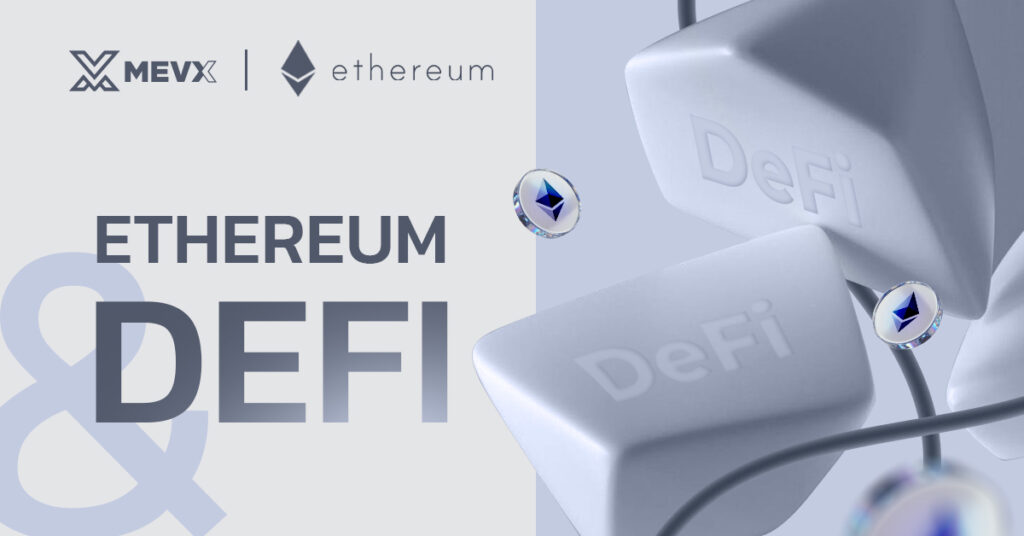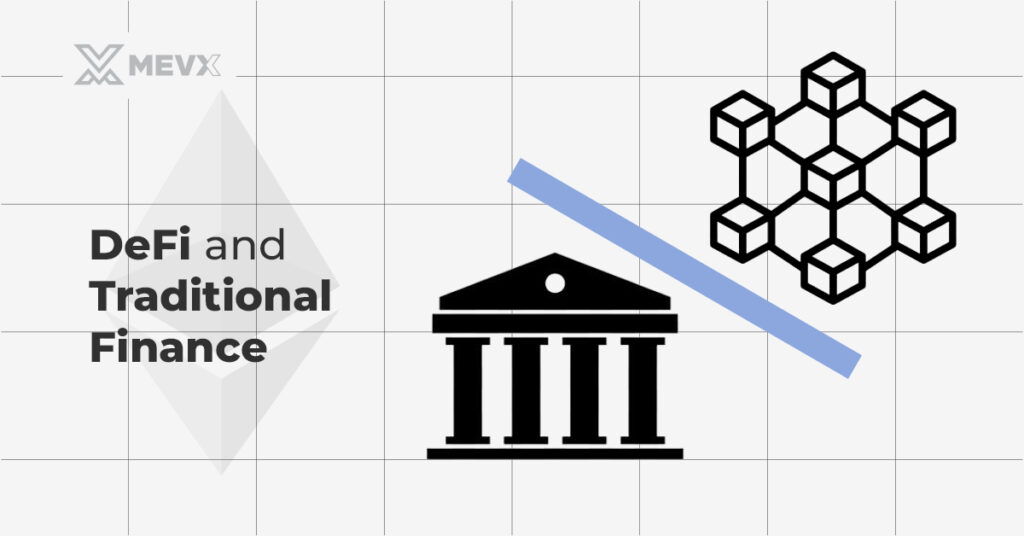Decentralized Finance, or DeFi, is an umbrella term for a broad range of financial services built on public blockchains, primarily Ethereum. DeFi on Ethereum enables users to perform financial transactions such as lending, borrowing, trading, and earning interest, all without the need for traditional intermediaries like banks. Instead, transactions are executed through smart contracts, ensuring transparency, efficiency, and accessibility.

Unlike traditional finance, DeFi is:
- Global: Accessible to anyone with an internet connection.
- Peer-to-peer: Transactions occur directly between users.
- Permissionless: No need for approvals from financial institutions.
- Pseudonymous: No personal information is required to participate.
- Transparent: Open-source protocols allow for public verification of transactions.
Why is DeFi Important?
DeFi expands on Bitcoin’s vision of digital money by creating an open, decentralized financial system. It removes the need for banks, brokers, and other costly intermediaries, making financial markets more accessible and efficient. This innovation has the potential to empower people globally, especially those without access to traditional banking services.
What are the Benefits of DeFi?
Let’s have a look at the key benefits of DeFi:
- Open Access: No need for applications or accounts, just a crypto wallet.
- Greater Control: Users have complete authority over their funds.
- Higher Yield: Interest rates on DeFi platforms are often significantly higher than traditional banking.
- Fast Transactions: Settlements occur in minutes, unlike traditional banks which take days.
- Transparency: All transactions are publicly verifiable on the blockchain.
How Does DeFi Work?
DeFi operates through decentralized applications (dApps) that run on the Ethereum blockchain. These dApps eliminate intermediaries, replacing them with smart contracts that automate financial transactions.
Common DeFi services include:
- Lending & Borrowing: Users can lend crypto to earn interest or take out loans without a credit check.
- Decentralized Exchanges (DEXs): Platforms like Uniswap allow peer-to-peer trading without a central authority.
- Yield Farming & Staking: Users can earn passive income by providing liquidity to DeFi protocols.
- Stablecoins: Digital assets pegged to traditional currencies, offering stability in volatile markets.
- Synthetic Assets: Blockchain-based assets that mimic the value of real-world financial instruments.
DeFi vs. Traditional Finance. What are the differences?
The following are the key differences between DeFi and traditional finance:

| Feature | DeFi | Traditional Finance |
| Control | Users have full control of their assets | Banks and institutions control user funds |
| Access | Open to anyone with internet | Requires bank accounts and verification |
| Transparency | Fully transparent, open-source | Opaque, private ledgers |
| Availability | Markets operate 24/7 | Limited to business hours |
| Fees | Lower transaction fees | Higher fees due to intermediaries |
While DeFi presents immense opportunities, it is not without risks:
- Smart Contract Vulnerabilities: Bugs and exploits can lead to significant losses.
- High Volatility: Crypto markets are unpredictable and can experience rapid price swings.
- Regulatory Uncertainty: Governments are still developing regulations for DeFi.
- Complexity: DeFi platforms require users to manage their own security, making them less user-friendly for beginners.
Ethereum: The Backbone of DeFi?
Ethereum is the primary blockchain for DeFi due to its robust smart contract capabilities. The Ethereum network provides:
- Security: A decentralized network resistant to fraud.
- Interoperability: Different DeFi protocols can seamlessly interact with each other.
- Scalability Solutions: Layer 2 solutions and upgrades like Ethereum 2.0 aim to reduce gas fees and improve efficiency.
What is The Future of DeFi on Ethereum?
DeFi on Ethereum is revolutionizing the financial landscape by making financial services more inclusive and efficient. With ongoing innovations in Ethereum scaling, regulation, and user-friendly applications, DeFi is expected to become a mainstream financial system, further blurring the lines between traditional and decentralized finance.
As DeFi continues to evolve, it offers a compelling alternative to conventional banking, one that is open, permissionless, and built for the digital age. Whether you’re a seasoned investor or new to crypto, DeFi on Ethereum is paving the way for the future of finance.
Further Reading
How Does the Ethereum Blockchain Work?
Ethereum 2.0 – Major Upgrades and the Future of Ethereum
Ethereum Layer 2 – Scaling Solutions Explained

